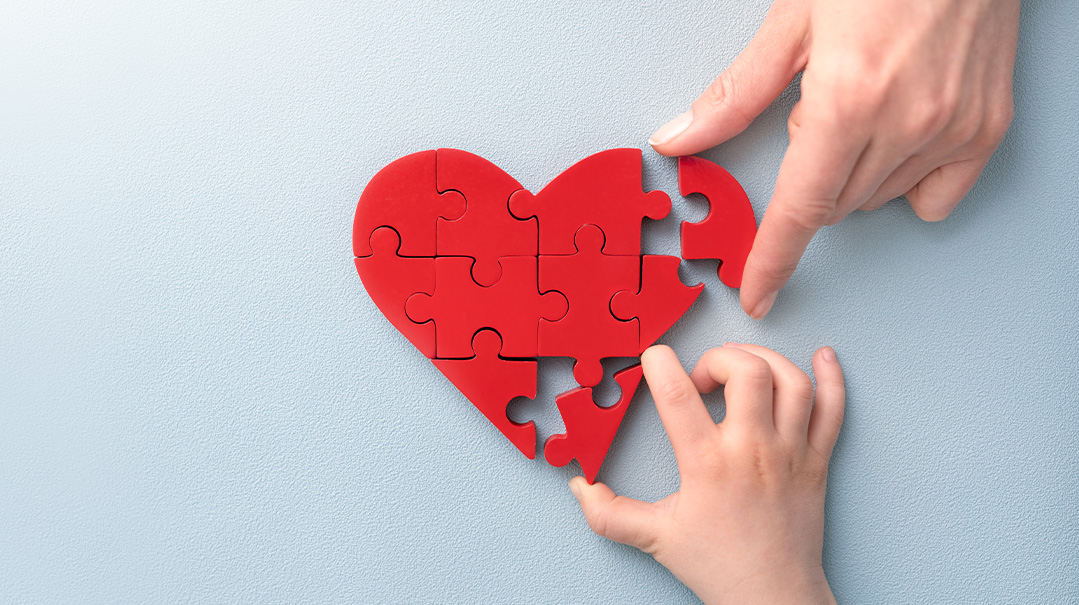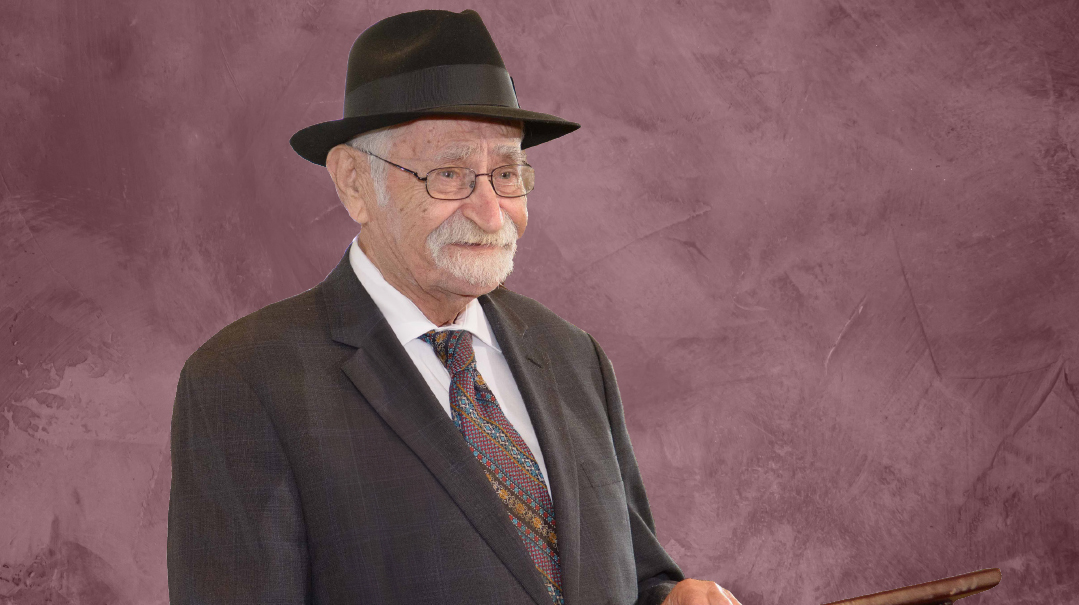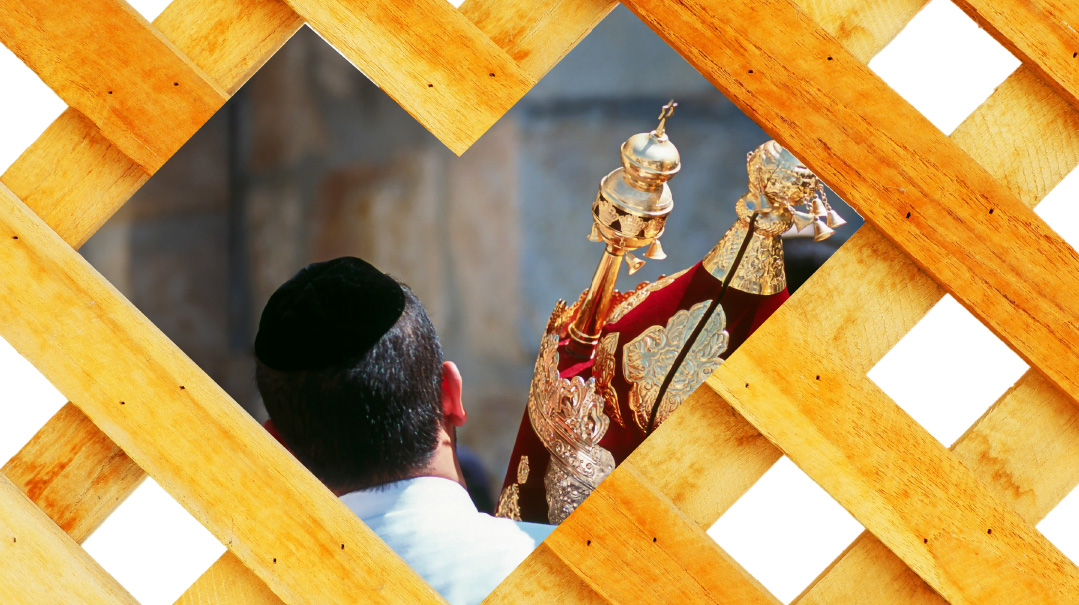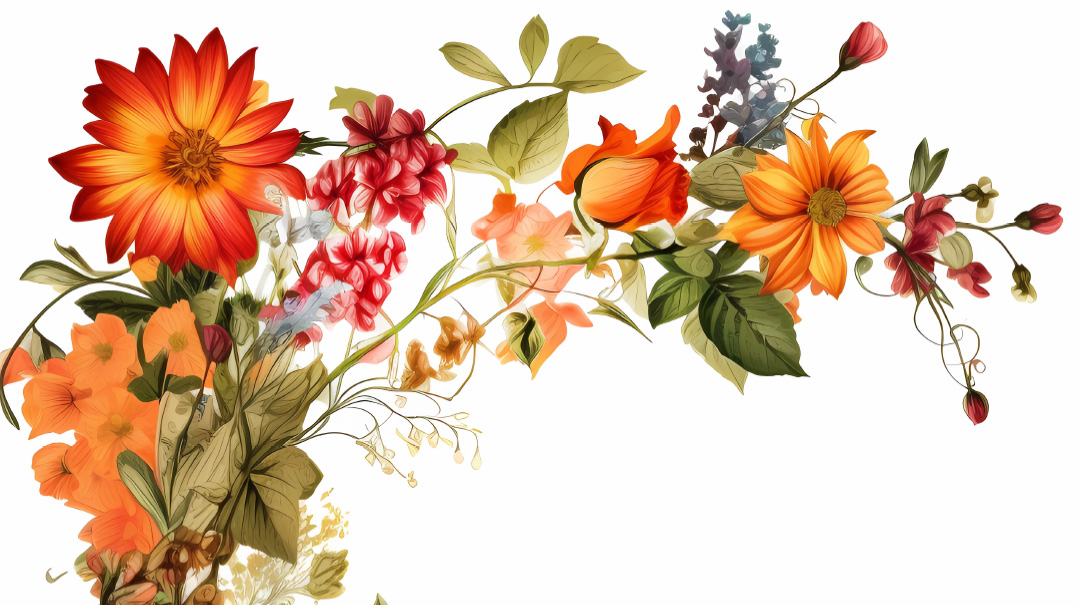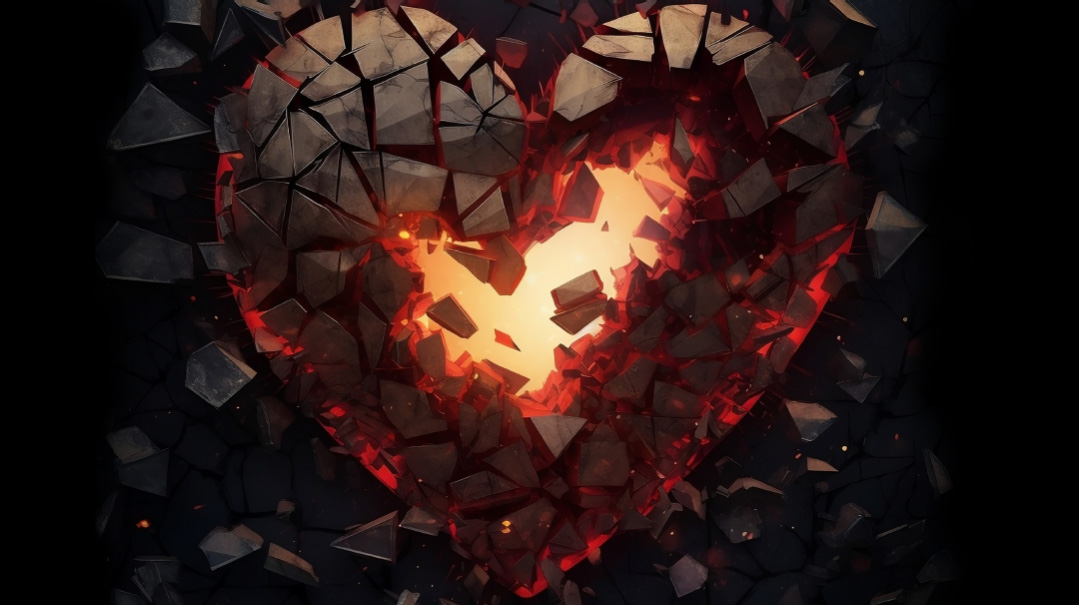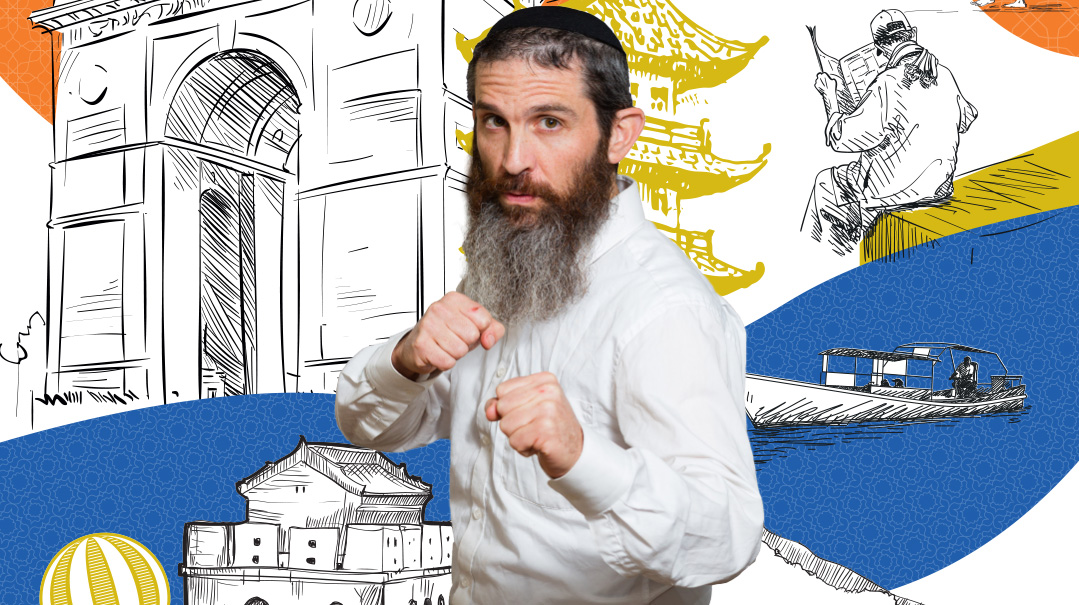The Maestro

Protein is what makes children grow big and strong. Ask a survivor. They know
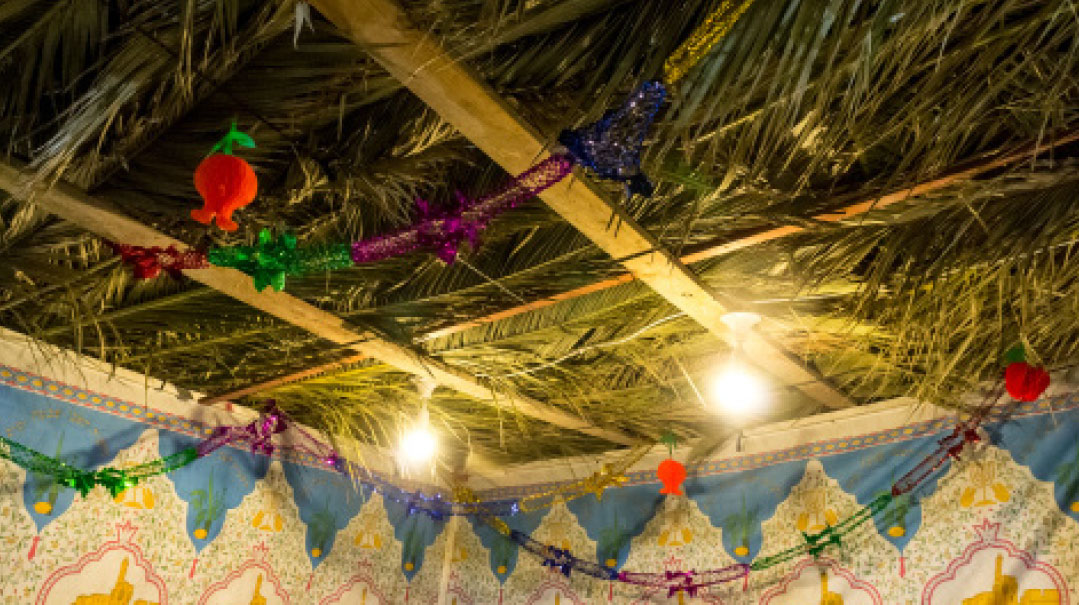
Succos 1999.
My parents are coming, and the house is alight with preparations and joy. Frenzied cooking, polishing the light switches, doing last-minute ironing, freshening up the bathrooms, hanging the cheery “Welcome Babby and Zeidy” signs… and they’re here!
My father, of the timeless, Jewish, long-suffering face, enters first, bearing a suitcase in his arms — no handles for him, oh no, too easy. He’s carrying his load like the baby one proffers to the kohein for its pidyon.
“Ta, let me help you…” I reach forward in what I know already to be a futile gesture.
“No! You have to hold it like this. Your mother baked a cake for Yom Tov and I don’t want it to get ruined.” Their entire trip, this soldier shouldered his burden so the cream on my mother’s famous 14 egg-yolk Crazy Cake shouldn’t smear. Crazy Cake, you gotta be crazy to make it and crazier still to eat it, it’s so rich.
We deposit the masterpiece on the counter gingerly, lovingly. More suitcases. They’re heavier than average, but then again, these grandparents are more generous than average.
In one suitcase, a veritable cow is packed, in all its glorious protein. After all, protein is what makes children grow big and strong. Ask a survivor. They know.
Look at me, I’m a survivor’s child. I ate protein every night of my life, and I’m a head taller than both my parents. Never mind that when my first date arrived, my mother whispered to me, “Take off those boots! You’re taller than the boy.”
“Ma, it’s snowing out,” I’d protested vainly. We’d compromised. I wore the boots, but I walked in the street. The power of protein.
Fast forward to the Yom Tov. We’re all seated in our decoratively festooned succah, resplendent in holiday garb. A feeling of royalty settles over each member of our painstakingly raised, precious clan.
Zeidy makes his usual emotional Kiddush, his voice cracking as it always does when he recites the Shehecheyanu. When will you stop breaking my heart, Ta? I can’t bear it. Nobody notices the tears welling up in my eyes. Good, I don’t want to ruin the happy atmosphere. We serve the first course, inhaling the tantalizing smell of fresh challah.
In the distance, a rumble of thunder is heard. My mother, still young then, jumps up to help clear the plates before it rains. “Ma, relax,” I enjoin, “it never rains here. It’s Yerushalayim.” She sits back down, and as she does, torrents of rain are unleashed upon us. What, where, how?!
We beat a hasty retreat to the safety of the dry indoors, behind our glass sliding doors, and watch openmouthed as our beautiful succaleh is demolished by a gargantuan, aberrant storm. The lights go out suddenly, a power outage.
The kids, their noses pressed against the glass, watching the power of nature’s destructive force, begin wailing. My father sits alone on the couch and begins chanting, almost imperceptibly at first, until I tune in and notice what he’s saying: “Ich hab gevolt zitzen in de succah in Yerushalayim un der Eibershter hat nisht gevolt…. I was planning to sit in the succah in Jerusalem, but my Creator does not will that….”
My mother stands with her grandchildren, watching the roof of our brave little succah blow right off, as though a tornado were at work. She shakes her head sadly and mumbles, “That’s how old we were when the bombs started falling. I was ten, and my sister was eight. We were holding hands, we couldn’t find our mother, and we were running and crying, running and crying.”
What happened to my perfectly planned Succos meal, orchestrated to bring nachas to my wonderful parents, with an overabundance of creative side dishes, panoply of succulent meats, and a hand-picked-from-my-eclectic-recipe-box assortment of rich desserts to please even my connoisseur Hungarian parents’ palates?
I’d even cued my big boys, then aged 15 and 16, to whisk their little sister to the back of the house at the first sign of a tantrum because Zeidy couldn’t bear to hear children cry.
“When I hear children cry, I see the big truck full of crying kinder, see them throwing the children into the big fire.” You win, Ta. And now, all my hard-earned efforts were naught, ruined by the storm. Der mentsh tracht un der Eibershter lacht, man proposes, G-d disposes.
My husband, ever the practical one on the team, began to make alternative sleeping arrangements for all the would-be succah sleepers. The boys don their rain gear, and resolutely set out to try and find a Shabbos goy in our predominantly shomer Shabbos neighborhood, who could get our power going again. All that hard-shlepped meat musn’t go to waste. The little girls wipe away their tears, and dazedly make their miserable way to bed, sniffling.
I stand at the window and listened to the echo reverberating in my head: “Ich hab gevolt zitzen in de succah in Yerushalayim in der Eibershter hat nisht gevolt.” This is how a man ravaged by G-d and His demonic messenger Hitler, resigns himself to his fate. This is how a 14-year-old child whose parents are brutally ripped away from him in Auschwitz remains a believing, practicing Jew. This is how a traumatized child became the loving man who resurrected a new life for himself and by himself, alongside his G-d, built a new family.
This is the family I was born into, imbued with my father’s pure accepting faith. This is my father, never bitter, who never once complained in all the years of our growing up. Nor does he ever grumble or grouse now as he bears his wounds and old age stoically. At age 83, kein ayin hara, my father still rises, as driven as ever, at 4 a.m. to say his Tehillim and perform his spiritual service, whose effect in the Upper realm I can only guess at.
I once watched in amazement as he dropped coins into a little tzedakah box while he mumbled tefillos, clutching his frayed tallis at 4 a.m. I was visiting and woke to the sound of his murmuring in the kitchen because of my jetlag.
“Ta, what are you doing so early in the morning?” I queried groggily.
“Ich deen der Bashefer, I am serving my Creator,” was his simple reply.
My father never went to high school. He went straight to work after he “recovered” from the Shoah’s tortures and he’s never stopped toiling. But his chanting gave him away. When it comes to Yiddishkeit, and accepting G-d’s will, he’s the maestro.
Ich hab gevolt zitzen in de succah in Yerushalayim, in der Eibershter hat nisht gevolt. What a responsibility. What a legacy.
(Originally featured in Family First, Issue 712)
Oops! We could not locate your form.

